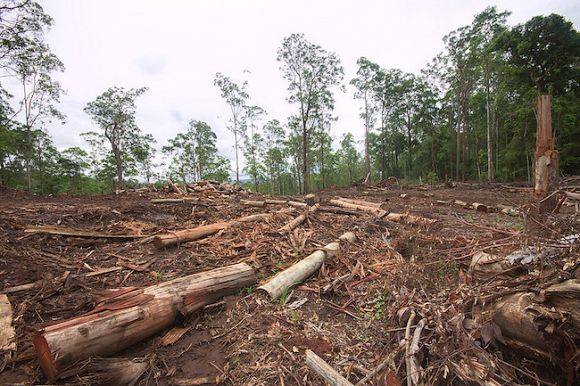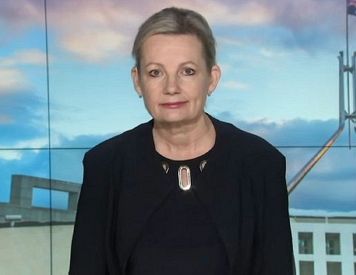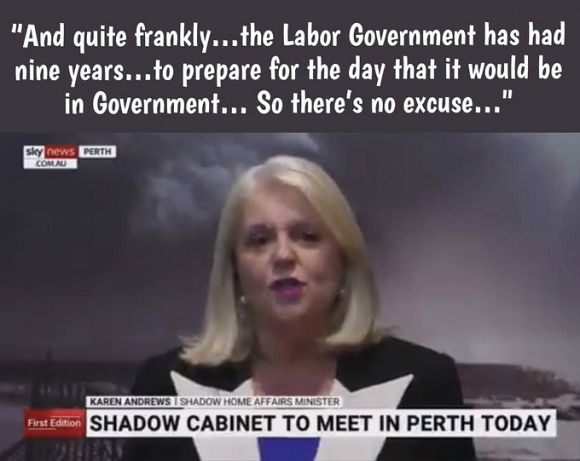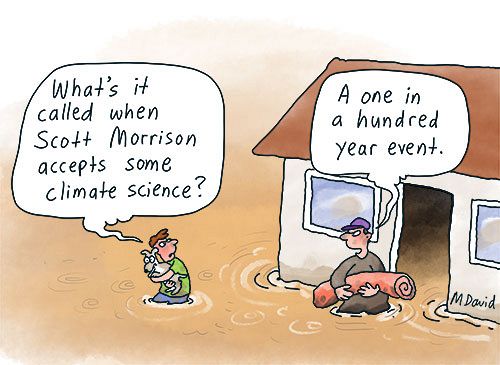The Labor Government seems focused on the mantra of jobs and growth, failing to observe the detrimental effects on biodiversity, writes Sue Arnold.
NOTICEABLY ABSENT from Prime Minister Anthony Albanese’s Job Summit were representatives from any environmental or climate organisations. The only NGOs invited were the Brotherhood of St Laurence, the Australian Council of Social Service, The Y Australia and National Seniors Australia.
The invitation list demonstrates concerning exclusions of organisations and issues. Excluding the state of the environment in any discussion on economic and job growth makes no sense. With the announcement by the Government that skilled immigration will be increased to 195,000 in the next financial year, with the potential for this figure to be a permanent number, no policies have been provided or discussed on critical issues relevant to a significant increase in population.
This figure doesn’t include refugees or international students.
While political parties, including the Greens, continue to deliver statements and policies on climate change, biodiversity loss has been consigned to the closets of national and state governments. Yet the two issues cannot be separated.
Major questions about Australia’s ability to provide the necessary infrastructure for the anticipated population growth are neither asked or addressed. Given the shift to regional areas as a result of the COVID pandemic, there is a question of whether the current infrastructure can adequately cope with the existing population.
Houses need to be built, along with suburbs, schools, roads, hospitals and shopping centres. Timber is needed for construction and the current number of plantations cannot meet the demand.
Native animals, birds, possums, gliders, invertebrates, insects and countless forest species also require homes to survive and reproduce. Yet their needs continue to be politically irrelevant. Without a healthy environment, the national and state economies will suffer irreversible declines.
Zero attention is being paid to the legacies of the 2019-2020 catastrophic bushfires incinerating approximately 3 billion animals, damaging ecosystems and burning massive areas of native forests.
The fires were recognised as a global environmental disaster.
Failing to develop an economic value for biodiversity, ecosystems, clean air, rivers and healthy marine environments ensures any national balance sheet does not reflect the true costs of destruction for growth versus protection of the environment and sustainable development in tune with the ecological carrying capacity of this ancient continent.
Global scientists, the UN and vulnerable countries recognise the current loss of biodiversity as the sixth great extinction.
Species, ecosystems and forests simply cannot regenerate and recover overnight. Scientists have acknowledged that some species may take up to 50 years to recover from the Black Summer fires.
In spruiking Labor’s environmental vision in response to and after the release of the bleak State of the Environment report, Environment Minister Tanya Pilbersek said in a recent speech:
“Australia’s environment is bad and getting worse, as this report shows, and much of the destruction outlined in the State of the Environment report will take years to turn around.”
Yet her speech skirted around any consideration of how harm to biodiversity by climate change could be incorporated into the Environment Protection and Biodiversity Conservation (EPBC) Act, which has no provisions dealing with climate change. Nor how our rapidly disappearing wildlife would be given increased legal protection and habitat loss halted.
In failing to address these issues, the Albanese Government ignores Australia’s track record of species extinction as one of the world’s worst. Biodiversity continues to be left in the too-hard basket in spite of being recognised as one of the top threats to the global economy along with climate change.
In a February 2021 article in The Conversation, scientists found that 19 Australian ecosystems met their criteria to be classified as “collapsing”. Their report indicates a potentially irreversible change to ecosystem structure, composition and function, imperilling biodiversity, human health and well-being.
The report found that ecosystems were rapidly deteriorating globally and species extinction rates are strongly correlated to both climate change and human footprint.
Taking steps to end the logging of native forests under the Regional Forest Agreements is obviously not on any Labor policy list. Industrial logging continues with ongoing unacceptable mortality of forest species as the industry is not required to abide by the environmental protection provisions of the EPBC Act.
Professor Graeme Samuel’s independent review of the EPBC Act found the legislation failed to safeguard Australia’s vulnerable plants, animals and ecological communities.
More recently, a Senate Committee on climate change legislation failed to recommend a prohibition on burning native forests for “renewable” energy, instead recommending the proposition be further investigated.
The Albanese Government, together with state governments, are back to the same old mantra — “jobs and growth”.
A major potential conflict of interests in Labor policy must be addressed. PM Albanese’s commitment to a 43% carbon emissions reduction target by 2030 without taking into account the impacts of significant increases in population in lifting the immigration cap creates a dichotomy.
The average American carbon footprint per person annually is 16.6 metric tons with the latest data indicating the global carbon footprint average 4.9 metric tons annually.
Have the federal and state governments assessed the carbon footprint of a significant increase in population?
What about the fossil fuel questions?
Shortly before the Jobs Summit, the Queensland Government approved mining leases for stage three of the New Acland project. According to a government report released in March, 34 proposed Queensland coal projects or expansions are in the pipeline.
If the 34 projects proceed, they would add a total of 855.8 million tonnes of carbon to the Earth’s atmosphere — 70% more than Australia’s total greenhouse emissions in this year up to September.
The recent approval of 47,000 km2 of ocean waters for seismic exploration for oil and gas is a potential disaster for cetaceans, crustaceans, turtles, fish larvae, fish and all marine life.
Resources Minister Madeleine King blamed wars and global turbulence for the decision:
“At the same time as we strive to reduce emissions, it must be emphasised that continued exploration for oil and gas in commonwealth waters is central to alleviating future domestic gas shortfalls.”
No doubt King would find it difficult to explain why former Resources Minister Martin Ferguson in 2013 rejected reserving sufficient gas to supply the domestic market. Currently, the east coast shortfall could equal 10% of demand.
Experts blame the failure to create a gas reservation for the east coast when large LNG export projects were approved in Queensland, leaving Australians on the east coast more vulnerable to price rises.
Of Australia’s total LNG capacity, 57% is produced in Western Australia which has a gas reservation policy.
Australia tops the list of the world’s biggest LNG exporters.
According to Professor Samantha Hepburn of Deakin University, the trigger to limit gas exports during periods of shortfall (known as the Australian domestic gas mechanism) is ‘a wholly inadequate measure to tackle our uncertain energy future’.
She further writes in The Conversation:
‘It’s unfathomable why a country with abundant and diverse gas resources does not protect its domestic market more effectively.’
In the meantime, thousands of people are living in sub-standard accommodation including tents, caravans, garages or the wreckage of their flooded houses in northern NSW and south-east Queensland. Many are still without adequate housing as a result of the Black Summer bushfires.
Skilled, qualified women could return to the workforce if they could get responsible, available and reasonable child care.
Shortages of skilled workers are a global issue as a result of the pandemic. No one has asked PM Albanese which countries have gluts of doctors, nurses, health workers and other skills.
The Sydney Morning Herald ran a report card on the first 100 days of the Albanese Government. Environment and biodiversity received no mention. Yet the environment was well up on the list of election concerns.
A job summit that excludes the primary drivers of economic stability, focused on growth with no consideration of the environmental flow-on impacts, is not in the national interest.
For many thinking people, the Summit has been a profound disappointment as once again we witness “growth at any cost” remains the number one policy of our major political parties.
Sue Arnold is an IA columnist and freelance investigative journalist. You can follow Sue on Twitter @koalacrisis.
Related Articles
 This work is licensed under a Creative Commons Attribution-NonCommercial-NoDerivs 3.0 Australia License
This work is licensed under a Creative Commons Attribution-NonCommercial-NoDerivs 3.0 Australia License
Support independent journalism Subscribe to IA.
















